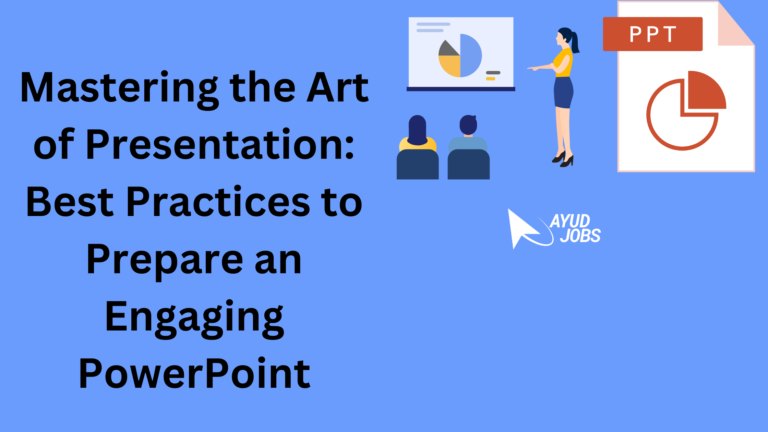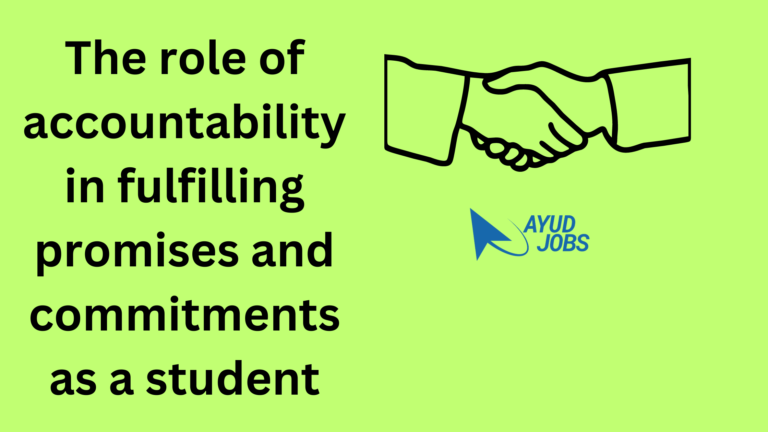Students’ Awareness on Job Search
Students’ Awareness on Job Search
Introduction
Searching for a job can be daunting, especially for students who are new to the process. However, with the right knowledge and strategies, it can become manageable and even rewarding. Students’ Awareness on Job Search. This blog aims to provide students with the essential tools and tips to navigate the job search landscape effectively.
Understanding the Job Market
The first step in any job search is understanding the job market. This includes knowing which industries are hiring, what skills are in demand, and what type of roles are available. Staying informed about these trends can give you a competitive edge.
Researching Industry Trends
Regularly reading industry news and reports can help you stay updated. Websites like LinkedIn, Glassdoor, and industry-specific forums are great resources. Use hashtags like #JobMarketTrends and #IndustryInsights to find relevant information on social media.
Preparing Your Resume
Your resume is your first impression on potential employers. It should be clear, concise, and highlight your strengths.
Crafting a Strong Resume
Contact Information: Include your name, phone number, and email address.
Objective: Write a brief statement about your career goals.
Education: List your educational background, starting with the most recent.
Experience: Include any work experience, internships, or volunteer work.
Skills: Highlight skills relevant to the job you’re applying for.
Use action verbs to describe your experiences, such as “managed,” “developed,” or “created.” This makes your resume more dynamic and engaging.
Networking
Networking is one of the most effective ways to find a job. Building relationships with professionals in your field can lead to job opportunities and valuable advice.
Effective Networking Strategies
Attend Industry Events: Look for conferences, seminars, and workshops.
Join Professional Organizations: Many fields have organizations that offer networking opportunities.
Use Social Media: Connect with professionals on LinkedIn and Twitter.
A real-time example is a student named John who attended a tech conference and met a recruiter from a leading IT company. Through this connection, he secured an internship that eventually led to a full-time job.
Applying for Jobs
When applying for jobs, it’s essential to tailor your application to each position. This shows employers that you’re genuinely interested in the role and understand what it entails.
Writing a Tailored Cover Letter
Address the Hiring Manager: If possible, find out the hiring manager’s name.
Introduce Yourself: Briefly introduce yourself and state the position you’re applying for.
Highlight Your Skills: Explain how your skills and experiences make you a good fit for the role.
Express Enthusiasm: Show your excitement about the opportunity.
Using transition words like “first,” “next,” and “finally” can help make your cover letter flow better.
Preparing for Interviews
Interview preparation is crucial. It’s your chance to showcase your skills and fit for the role.
Common Interview Questions
Tell me about yourself.
Why do you want to work here?
What are your strengths and weaknesses?
Describe a challenging situation and how you handled it.
Practice your answers to these questions. Doing mock interviews with friends or mentors can also be helpful.
Following Up
After an interview, it’s important to follow up with a thank you note. This shows appreciation and keeps you on the interviewer’s mind.
Writing a Thank You Note
Express Gratitude: Thank the interviewer for their time.
Reiterate Interest: Mention your interest in the role.
Highlight Key Points: Briefly touch on key points from the interview.
Staying Positive and Persistent
Job searching can be challenging, but staying positive and persistent is key. Rejections are part of the process, and each one is an opportunity to learn and improve.
Real-Time Example: Sarah’s Journey
Sarah, a recent graduate, struggled to find a job in her field. She applied to dozens of jobs without success. Instead of giving up, she sought feedback on her resume and cover letter, attended networking events, and practiced her interview skills. After several months, she landed her dream job in marketing. Her persistence and willingness to learn made all the difference.
Conclusion
Job searching is a skill that can be learned and mastered. By understanding the job market, preparing a strong resume, building a professional online presence, networking, tailoring your applications, preparing for interviews, and staying positive, students can significantly increase their chances of finding a job. Use hashtags like #JobSearchTips, #CareerAdvice, and #StudentSuccess to stay connected with the latest job search strategies and tips. Students’ Awareness on Job Search.
Remember, every step you take brings you closer to your dream job.
#JobSearch #CareerAdvice #StudentSuccess #ResumeTips #Networking #InterviewPrep #JobMarket #LinkedInTips #CareerGoals #JobHunting #CollegeToCareer #CareerDevelopment #InternshipTips #JobOpportunities #JobSearchJourney #Graduates #EntryLevelJobs #JobSearchStrategies #CareerPath #FirstJob #CareerSuccess #ProfessionalGrowth #JobTips #FutureOfWork #Employment #ayud #ayudjobs #askayud #MultiLanguageSupport #ResumeBuilder #gotestit #ayudian #ayudblog
How to Use Ayud Jobs: A Comprehensive Guide
Join our what’s app channel for timely updates
Click here to install Ayud Jobs App from Playstore
Job Providers: https://api.ayudjobs.com/client/register
Mastering Knowledge with GoTestIt: The Ultimate Self Evaluation Tool







